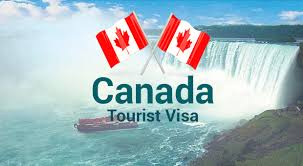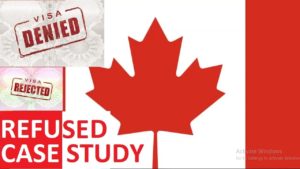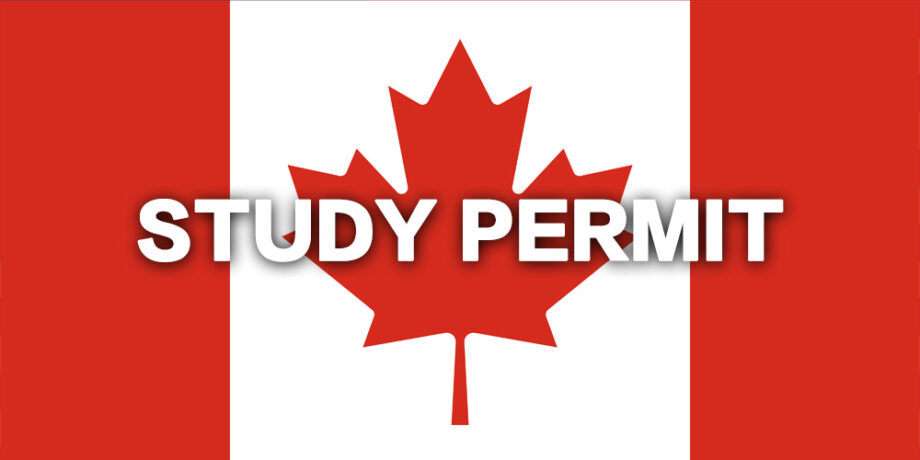Study Permit Toronto

Study Permit Toronto
A study permit is a document issued by the Canadian government that allows foreign nationals to study at designated learning institutions (DLIs) in Canada, such as universities, colleges, and language schools. Toronto, as Canada’s largest city and a global educational hub, attracts thousands of international students each year due to its reputable institutions and diverse community. This report will outline the application process, eligibility requirements, and tips for maintaining compliance for obtaining a study permit to study in Toronto.
1. Overview of the Canadian Study Permit
A Canadian study permit is not a visa. Instead, it is a document that grants foreign nationals permission to study in Canada. However, in many cases, a visitor visa or an electronic travel authorization (eTA) is also required to enter Canada, which is issued as part of the study permit application process.
Toronto, as a vibrant multicultural city, is home to several leading educational institutions, including the University of Toronto, Ryerson University, York University, and a wide array of colleges and private institutions. These institutions are all DLIs, meaning they meet government requirements to host international students.
2. Eligibility Criteria for a Study Permit
To be eligible for a Canadian study permit, students must meet certain criteria:
- Acceptance by a DLI: Applicants must have an acceptance letter from a DLI in Toronto, such as the University of Toronto, Ryerson University, or George Brown College.
- Proof of Financial Support: Applicants must demonstrate they have enough funds to cover tuition, living expenses, and transportation costs to and from Canada.
- Clear Criminal Record: A police clearance certificate may be required to demonstrate good character and show that the applicant does not have a criminal record.
- Medical Examination: Depending on the country of origin, applicants may need to undergo a medical examination to show they are in good health.
- Proof of Intent to Leave: Students must show that they will leave Canada after their studies are complete, although many transition to work or immigration programs afterward.
3. Steps to Apply for a Study Permit in Toronto
The process of obtaining a study permit typically involves several steps:
Step 1: Receive an Acceptance Letter from a DLI: Study Permit Toronto
Before applying for a study permit, students must receive a letter of acceptance from a recognized DLI in Toronto.

Step 2: Gather Financial Proof for Study Permit Toronto
Students need to provide documentation showing they have sufficient funds for tuition and living expenses. This could include:
- Bank statements from the last four months
- Proof of a Canadian bank account if money has been transferred to Canada
- A Guaranteed Investment Certificate (GIC) from a participating Canadian financial institution
- Evidence of a student loan, scholarship, or sponsorship if applicable
Step 3: Complete the Application Form and Submit Supporting Documents for Study Permit Toronto
The application form can be completed online through Immigration, Refugees and Citizenship Canada (IRCC) or in paper form. Supporting documents often include:
- Passport
- Letter of acceptance from a DLI
- Proof of financial support
- Recent photographs that meet IRCC’s specifications
- Additional documents if required, such as police certificates or medical examination results
Step 4: Pay the Application Fee: Study Permit Toronto
The study permit application fee is currently CAD 150, though fees are subject to change. Payments can typically be made online.
Step 5: Biometrics and Interview: Study Permit Toronto
Most international students are required to provide biometrics (fingerprints and photo) as part of the application process. An interview with an immigration officer may also be necessary in certain cases, either in the applicant’s home country or upon arrival in Canada.
Step 6: Wait for Processing: Study Permit Toronto
The processing time for a study permit can vary depending on the applicant’s home country and other factors. Applying early is highly recommended.
Step 7: Approval and Entry to Canada: Study Permit Toronto
Once approved, students will receive a port of entry letter of introduction, which they will present to the immigration officer when they arrive in Canada. Upon arrival, the officer will issue the study permit document.

4. Working While Studying in Toronto: Study Permit Toronto
One of the benefits of holding a Canadian study permit is the ability to work while studying. There are various ways international students can legally work in Canada:
- On-Campus Work: Students can work on campus without a work permit as long as they are enrolled full-time.
- Off-Campus Work: Study permit holders can work off-campus for up to 20 hours per week during the academic year and full-time during scheduled breaks.
- Co-op or Internship Programs: If a student’s program includes a mandatory co-op or internship, they can apply for a co-op work permit to gain hands-on experience.
5. Extending or Renewing the Study Permit in Toronto
International students must ensure that their study permit remains valid throughout their study program. If an extension is needed, they should apply for it at least 30 days before their current permit expires. The extension application process is similar to the initial application and can be completed online through IRCC.
6. Post-Graduation Work Permit (PGWP) Program: Study Permit Toronto
The PGWP is a popular option for students who wish to gain work experience in Canada after completing their studies. Graduates from eligible Canadian institutions, including many in Toronto, may apply for a PGWP, which is typically valid for a period equal to the duration of their program, up to a maximum of three years. This work experience can help graduates qualify for permanent residency through immigration programs like the Canadian Experience Class.
7. Compliance with Study Permit Conditions: Study Permit Toronto
Maintaining compliance is essential for study permit holders. Key conditions include:
- Remaining enrolled at a DLI and making satisfactory progress in the program
- Notifying IRCC of any changes, such as transferring to a new school or program
- Complying with work-hour limitations
- Leaving Canada once the permit expires, unless an extension, work permit, or residency application is in place
Failure to comply with these conditions can result in the revocation of the study permit and, in some cases, deportation.
8. Common Challenges and Tips for Success: Study Permit Toronto
Navigating the study permit process can be challenging, especially for first-time applicants. Here are some tips:
- Apply Early: Given the potential for long processing times, it is wise to apply at least six months before the intended program start date.
- Provide Accurate Documentation: Ensure all information is complete and accurate to avoid delays or refusals.
- Seek Assistance if Needed: Many institutions have international student offices that can provide guidance, and consulting with an immigration lawyer or authorized consultant can also be beneficial.

9. Cost of Living in Toronto: Study Permit Toronto
Living in Toronto can be costly, especially compared to other Canadian cities. International students should budget carefully for:
- Housing: Rent for a one-bedroom apartment can range from CAD 1,500 to CAD 2,500 per month, depending on location.
- Transportation: The Toronto Transit Commission (TTC) offers student passes for public transit, but budgeting around CAD 128 per month for transportation is common.
- Health Insurance: International students must have health insurance, which is often provided through their educational institution.
10. Key Institutions in Toronto: Study Permit Toronto
Toronto is home to a wide array of reputable institutions, including:
- University of Toronto (U of T): U of T is a prestigious research university ranked among the top in the world.
- York University: Located north of downtown Toronto, York is known for its programs in law, business, and environmental studies.
- Ryerson University: Known for its career-focused programs in engineering, business, and media, Ryerson offers a dynamic urban campus.
- George Brown College: A prominent college offering a range of technical and vocational programs aligned with industry demands.
Conclusion
Obtaining a study permit for Toronto opens doors to world-class education and potential career opportunities in one of the world’s most diverse cities. Through careful preparation and compliance with the study permit requirements, international students can make the most of their educational experience in Toronto. By following the outlined steps and understanding the responsibilities that come with the permit, students can achieve a rewarding and successful academic journey in Canada.
In case, if you need help with Study Permit in Toronto or any other immigration services in Canada, please fill in application below or contact us directly.

